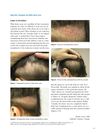 6 citations,
March 2008 in “Dermatologic Surgery”
6 citations,
March 2008 in “Dermatologic Surgery” Transplanting chest hair into scars can effectively treat wide donor scars from hair restoration surgery.
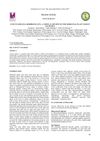 4 citations,
December 2017 in “International journal of research in ayurveda and pharmacy”
4 citations,
December 2017 in “International journal of research in ayurveda and pharmacy” The dodder plant has anti-inflammatory, antimicrobial properties, and may promote hair growth.
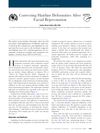 6 citations,
July 2007 in “Aesthetic Surgery Journal”
6 citations,
July 2007 in “Aesthetic Surgery Journal” The document concludes that using autologous follicular unit implantation is a successful method to correct hairline deformities after facial rejuvenation.
The right balance of Myo-Inositol to D-Chiro-Inositol in follicular fluid is crucial for good egg and embryo quality.
 5 citations,
November 2017 in “Hair transplant forum international”
5 citations,
November 2017 in “Hair transplant forum international” Following a standard process for FUE hair transplants leads to consistent results.
16 citations,
April 1985 in “Archives of dermatology” The summary does not report the effectiveness of Stanozolol in treating Pityriasis rubra pilaris.
September 2021 in “CRC Press eBooks” Androgenetic alopecia is a common hair thinning condition linked to genetics and hormones.
 1 citations,
March 2017 in “Archives of Plastic Surgery”
1 citations,
March 2017 in “Archives of Plastic Surgery” A new method using gentian violet dye makes it easier to see and work with white hair in hair transplant surgeries.
 8 citations,
December 2015 in “PubMed”
8 citations,
December 2015 in “PubMed” Phyllanthus niruri extract may help treat hair loss by promoting hair growth and blocking a hair loss-related enzyme.
1 citations,
March 2012 in “Actas dermo-sifiliográficas/Actas dermo-sifiliográficas” Dermoscopy helps diagnose frontal fibrosing alopecia by identifying specific scalp features.
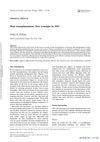 9 citations,
January 2005 in “Journal of Cosmetic and Laser Therapy”
9 citations,
January 2005 in “Journal of Cosmetic and Laser Therapy” In 2005, hair transplants looked natural and worked best with realistic goals, medication to preserve hair, and depended on the amount of donor hair.
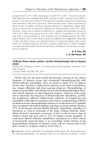 January 2012 in “Yearbook of Dermatology and Dermatologic Surgery”
January 2012 in “Yearbook of Dermatology and Dermatologic Surgery” The study concluded that a 'Swiss cheese' pattern in hair follicles is a useful sign for diagnosing alopecia areata.
 13 citations,
January 2014 in “PubMed”
13 citations,
January 2014 in “PubMed” Adiantum capillus-veneris Linn reduced hair loss and improved hair growth in mice with testosterone-induced alopecia.
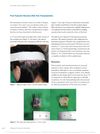 1 citations,
August 2015 in “Dermatologic Surgery”
1 citations,
August 2015 in “Dermatologic Surgery” A woman's chronic head pain after hair transplant surgery was cured by removing a post-traumatic neuroma.
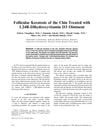 13 citations,
July 2007 in “Pediatric dermatology”
13 citations,
July 2007 in “Pediatric dermatology” Vitamin D3 ointment improved skin bumps on the chin but didn't give lasting results after stopping use.
 June 2007 in “Faculty Opinions – Post-Publication Peer Review of the Biomedical Literature”
June 2007 in “Faculty Opinions – Post-Publication Peer Review of the Biomedical Literature” Hair can regrow in adult mice's skin after injury, and this regrowth doesn't come from existing hair cells but from skin cells in the wound, with Wnt7a protein helping this process. This could help treat baldness and scarring.
 2 citations,
January 2012 in “Springer eBooks”
2 citations,
January 2012 in “Springer eBooks” Hair restoration has greatly improved since 1992, moving from obvious grafts to unnoticeable hair transplants, thanks to better knowledge and dedication to excellence.
 15 citations,
February 2003 in “British Journal of Dermatology”
15 citations,
February 2003 in “British Journal of Dermatology” The study suggests computer-assisted analysis of scalp biopsies could improve hair loss diagnosis but needs more validation.
 11 citations,
January 2013 in “Indian Dermatology Online Journal”
11 citations,
January 2013 in “Indian Dermatology Online Journal” CCCA is a common, progressive hair loss condition that may not always be linked to hair care practices and requires a biopsy for diagnosis.
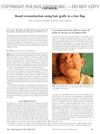 5 citations,
December 2011 in “Canadian Journal of Plastic Surgery”
5 citations,
December 2011 in “Canadian Journal of Plastic Surgery” Hair grafts can successfully reconstruct a beard on reconstructed jaw skin, improving appearance and patient satisfaction.
 9 citations,
June 2003 in “Veterinary dermatology”
9 citations,
June 2003 in “Veterinary dermatology” Boxer dogs may have a genetic skin condition that worsens seasonally and can be treated with certain medications.
 10 citations,
January 2008 in “PubMed”
10 citations,
January 2008 in “PubMed” Hair transplantation is a safe, outpatient procedure for restoring hair in individuals with pattern hair loss or certain types of scarring, requiring a trained physician and team, with ongoing medical treatment recommended.
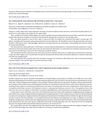
The TAP flap is effective for treating armpit scars from burns, and tissue-engineered templates with hair follicles can help treat scalp burn alopecia.
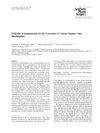 11 citations,
January 2007 in “Aesthetic Plastic Surgery”
11 citations,
January 2007 in “Aesthetic Plastic Surgery” Hair transplant is a safe and effective way to fix aesthetic issues after a facelift, with most patients happy with the results.
 January 2007 in “Elsevier eBooks”
January 2007 in “Elsevier eBooks” The document concludes that hair transplantation for Asians should consider unique scalp and hair traits, use small grafts, and combine surgery with medication like finasteride and minoxidil for best results.
34 citations,
June 2020 in “British journal of dermatology/British journal of dermatology, Supplement” Frontal fibrosing alopecia is linked to increased immune system activity and reduced stem cells, suggesting early treatment targeting this pathway might prevent hair follicle damage.
 January 2024 in “Springer eBooks”
January 2024 in “Springer eBooks” Modern hair restoration techniques offer natural results with minimal complications.
March 2023 in “Chinese Journal of Dermatology” Protecting hair and scalp from sunlight may help prevent hair loss.

Hair restoration surgery has improved to transplant hair in natural groupings, but it's labor-intensive and can't fully restore normal hair density.
 2 citations,
July 1999 in “International Journal of Clinical Practice”
2 citations,
July 1999 in “International Journal of Clinical Practice” Common baldness treatments include cosmetic methods, medication like minoxidil, and surgery, but no cure exists.
























